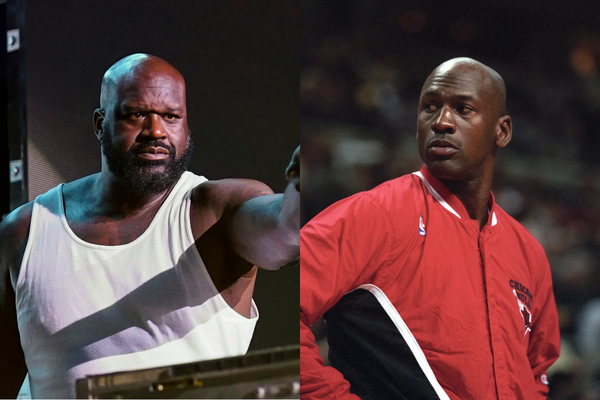

Everyone knows the drill: Make it to the NBA, shine on the court, and live the dream. But here’s the catch—every player’s time in the league eventually runs out. While some fade into the background, others step off the hardwood and into something even bigger. Think of legends like Michael Jordan, Magic Johnson, or Shaquille O’Neal. Their post-NBA careers are stories of smart moves, solid investments, and staggering fortunes.
Michael Jordan’s net worth sits at a jaw-dropping $3.2 billion. Magic Johnson’s at a solid $1.2 billion, and Shaquille O’Neal, always larger than life, boasts $500 million. Their successes often dominate headlines as benchmarks for retired players. But here’s where it gets even more interesting—others are also quietly making their mark in the business world. Let’s dive into the story of a retired player whose name you might not immediately think of.
ADVERTISEMENT
Article continues below this ad
Junior Bridgeman
When you think of basketball icons-turned-business moguls, Junior Bridgeman might not be the first name that comes to mind. However, he’s $100 million richer than Shaquille O’Neal, thanks to his savvy business strategies! Bridgeman, who played 12 seasons with the Milwaukee Bucks and LA Clippers starting in 1975, built a legacy beyond the court, proving that it’s possible to achieve greatness in more ways than one.

via Getty
LOUISVILLE, KY – MAY 04: Junior Bridgeman attends The Trifecta Gala on May 4, 2018 in Louisville, Kentucky. (Photo by Stephen J. Cohen/Getty Images)
What made him stand out? While still dominating as an NBA player, Bridgeman was already investing in Wendy’s franchises. Not just as a side hustle, but with a clear, long-term vision. He didn’t stop there; his network expanded to over 160 Wendy’s and Chili’s outlets.
What sets Bridgeman apart isn’t just the amount of money he made; it’s how he did it. His diversified investments shielded him from financial downturns, ensuring consistent growth. With a net worth of $600 million in 2024, according to Celebrity Net Worth, Bridgeman is not just a retired NBA star—he’s a business powerhouse.
Grant Hill
Next on the list is Grant Hill, a basketball prodigy-turned-business mogul. Starting his NBA career with the Detroit Pistons in 1994 after making waves at Duke University, Hill played for the Orlando Magic, Phoenix Suns, and finally the LA Clippers before retiring in 2013. His success didn’t stop at basketball, though. With an impressive portfolio of ventures, Hill has built a net worth of $250 million, making his transition from the court to the boardroom look effortless.

via Imago
Apr 17, 2024; New York, New York, USA; U.S. Olympic basketball coach Grant Hill poses for a photo at the Team USA Media Summit at Mariott Marquis. Mandatory Credit: Robert Deutsch-Imagn Images
It all began in the ’90s when Hill struck an $80 million deal with Fila—a groundbreaking move at the time. He later renewed the partnership, adding an annual $10 million to his income. But Hill didn’t stop there. He’s also an enthusiastic art collector and philanthropist, channeling his resources into causes supported by the Grant Hill Foundation. His real estate investments in Florida, inspired by his parents, include multifamily units and office buildings. Hill Ventures, his marketing and management company, has raked in nearly $200 million, proving his knack for spotting winning opportunities.
David Robinson
Then there’s David Robinson, also known as The Admiral, with a net worth of $200 million as per Celebrity Net Worth. As the cornerstone of the San Antonio Spurs from 1989 to 2003, Robinson earned two NBA championships, 10 All-Star selections, and an MVP award in 1995. However, his impressive resume isn’t limited to basketball accolades. Just like Shaquille O’Neal Post-retirement, Robinson built a financial empire, cementing his legacy off the court.

via Getty
Tim Duncan #21 and David Robinson #50 of the San Antonio Spurs pose with the Larry O’Brien trophy after defeating the New Jersey Nets in Game six of the 2003 NBA Finals at SBC Center in San Antonio, Texas. The Spurs won 88-77 and defeated the Nets to win the NBA Championship. Mandatory Copyright NBAE (Photo by Nathaniel S. Butler/NBAE via Getty Images)
Robinson’s focus on private equity is where things get truly exciting. In 2007, he launched Admiral Capital, which raised $115 million and eventually acquired real estate assets worth $350 million. Not content to rest, he created a second fund in 2015, aiming for $175 million to further his real estate ventures. But what truly sets him apart is his heart. Robinson donates 10% of his fund’s profits to charities, consistently working to uplift inner-city youth. This mix of business savvy and giving back makes Robinson an inspiration in more ways than one.
Vince Carter
Then comes Hall of Famer Vince Carter, the man famously known as Half Man, Half Amazing. Beyond his jaw-dropping dunks and electrifying gameplay, Carter proved to be just as sharp off the court. With a net worth of $110 million, Carter’s rookie deal with Puma and later partnerships with Nike laid the foundation for his financial success. Adding to this, he ventured into the restaurant business, opening Vince Carter’s in Daytona Beach back in 2010. Though he sold the restaurant for $4.3 million in 2017, it showcased his entrepreneurial mindset.

via Getty
TORONTO, CANADA – NOVEMBER 1: Vince Carter #15 of the Toronto Raptors poses during a photo shoot on November 1, 1999 at the Air Canada Centre in Toronto, Ontario, Canada. NOTE TO USER: User expressly acknowledges and agrees that, by downloading and/or using this photograph, user is consenting to the terms and conditions of the Getty Images License Agreement. Mandatory Copyright Notice: Copyright 1999 NBAE (Photo by Nathaniel S. Butler/NBAE via Getty Images)
Moreover, Carter smoothly transitioned into sports media, earning a solid reputation as an analyst. His expertise landed him gigs with TNT, ESPN, and the YES Network, where he became a familiar face for basketball fans. This career move not only extended his presence in the sport but also highlighted his knack for balancing on-court success with off-court ventures. It’s safe to say that Vinsanity never really slowed down—it just shifted gears.
ADVERTISEMENT
Article continues below this ad
Tracy McGrady
Next up is Tracy McGrady, Carter’s Hall of Fame cousin, who boasts a net worth of $70 million. Known for his unstoppable scoring and jaw-dropping plays, T-Mac made over $160 million in total salary during his illustrious 15-season career. Now, alongside Carter, McGrady has joined a minority ownership group for the Buffalo Bills, proving the family’s talent for translating athletic success into business brilliance.
ADVERTISEMENT
Article continues below this ad

via Imago
Credits: Tracy McGrady’s Official Instagram Account
McGrady didn’t stop there. Post-retirement, he turned his focus to ventures like Dasdak, a tech company, and Blue-04, a water business in Florida. On top of that, he became part-owner of the Biloxi Shuckers, showcasing his diverse investment portfolio. Whether it’s tech, water, or baseball, McGrady continues to impress with his entrepreneurial game.
ADVERTISEMENT
ADVERTISEMENT
ADVERTISEMENT
ADVERTISEMENT

